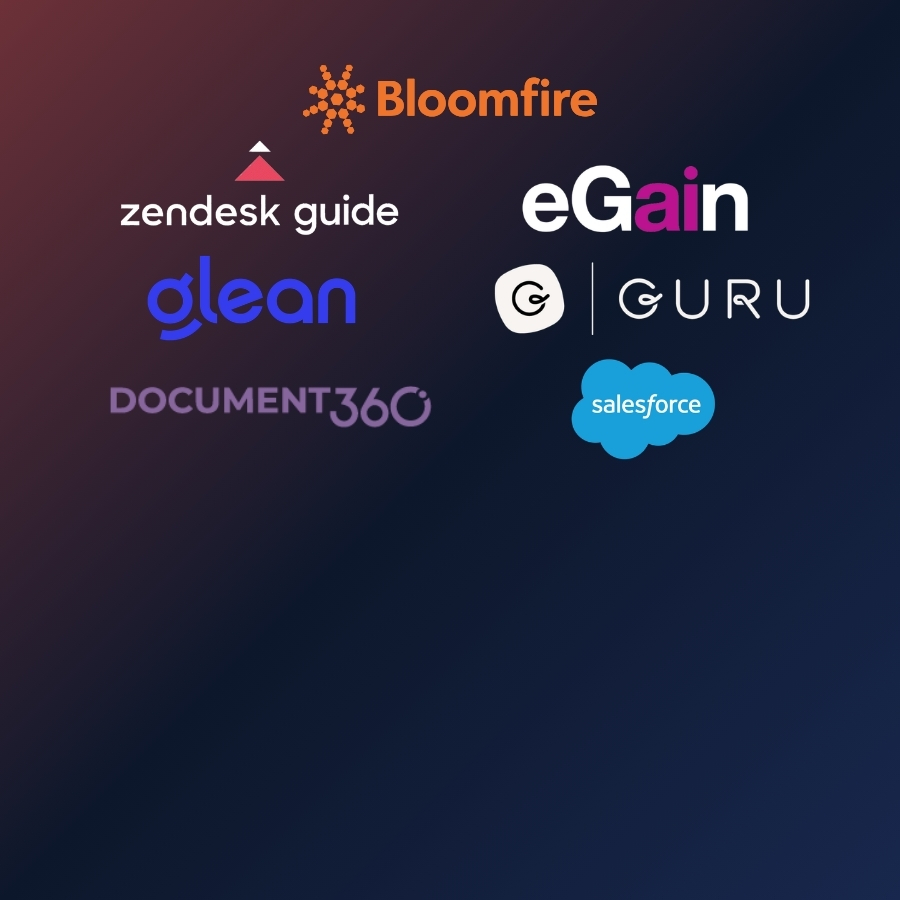Strengthen the Client-Agency Relationship with a Knowledge Engagement Platform

Reams have been and will be written about the finer points of building and sustaining a strong client-agency relationship. The fundamentals are straightforward (or at least sound straightforward on paper). Set clear and specific expectations about everything from strategic goals to operational details. Commit to transparency and honor trust. Make sure communication is clear, accurate, thorough, prompt, and frictionless.
Essentially, the most successful client-agency relationships—the most productive and most durable—are genuine partnerships. The two entities work as a team, facilitating dialogue and fostering real collaboration.
Dedicating the time, resources, and effort to build a strong client-agency relationship pays off in loyalty. While the length of the average client agency relationship is just 3.2 years, the best client-agency relationships last 22 years on average, according to research from R3.
So, how do you make sure your agency is building relationships with your clients that rank among the best?
Empower Agency Employees with Access to Knowledge
Strong client relationships require a strong agency, one that is equipped both culturally and structurally to deliver the smart support clients need and expect. As you think about operational changes you can make to improve the client-agency relationship, keep the following best practices in mind:
- Avoid information silos. There can be a natural tendency for various departments or client teams that are optimizing their own work to become cut off from each other. But as everyone knows by now, silos are structurally and culturally expensive. Even when unintentional or unconscious, barriers to engagement within your agency—especially around knowledge—can lead to duplication of effort and missed opportunities for collaboration, as well as undermine trust and hurt morale.
- Capture and preserve institutional knowledge. Every organization contends with this challenge, but it’s especially pressing in the agency world, where the average annual turnover rate hovers around 30 percent. If your agency doesn’t have a system in place to capture both institutional and tribal knowledge, you risk losing valuable intelligence whenever employees leave or are out of the office, which in turn can negatively impact your client relationships.
- Democratize access to information. The most powerful way to leverage an agency’s collective intelligence is by giving everyone full access to the materials and intelligence being generated across teams—and making that information easy to search. This empowers team members and deepens the agency-wide knowledge base because each person or team brings unique areas of expertise and insights into different accounts.
- Optimize internal subject matter experts (SMEs). Make it easy for team members to locate and leverage subject matter expertise within the agency. Ideally, employees should have one centralized place to go to ask questions of SMEs, and the answers should be preserved so that SMEs don’t have to answer the same question over and over again.
How a Knowledge Engagement Platform Strengthens Client-Agency Relationships
One approach that helps in implementing the best practices outlined above is to put the entire collective intelligence of the agency at every team member’s fingertips using a knowledge engagement platform.
Providing a Single Source of Truth
A knowledge engagement platform essentially turns an agency’s collective intelligence into a searchable library of client work, market insights, and other agency knowledge. Everything from pitch decks to focus group videos becomes easily searchable and discoverable. And this access can be extended to client-side partners, using different permissions and structures to control what content clients can access, keeping internal information secure while allowing clients to self-serve the information they need.
This enables everyone to synthesize existing knowledge and make insights-driven decisions. Team members are always armed with the best materials and intelligence the agency has to serve the needs of clients and prospects. Likewise, clients are able to draw on and contribute to the collective knowledge that helps drive their success.
The agency can develop connected knowledge hubs for each team or group while unifying information across the agency in the broader platform. This gives every team a destination optimized for their needs while enabling them to engage with and learn from peers on different teams. Another benefit is preventing unnecessary duplication of effort since anyone can easily search and synthesize “everything we know so far” about their topic of interest.
Crowdsourcing Subject Matter Expertise
A well-run agency full of smart experts is only as good as their ability to leverage its collective intelligence. Another way a knowledge engagement platform can help your agency do this is by giving everyone one searchable place to ask and answer questions. This saves employees time because they can crowdsource an answer rather than attempting to track down the individual with the right knowledge, and it saves SMEs time (and unnecessary headaches) by allowing them to share their expertise where everyone can access it, rather than having to repeat or resend the same information to different employees.
Fueling Collaboration and Innovation Across Teams
In this new era of remote and flexible work, a knowledge engagement platform can offer a venue for asynchronous collaboration. Employees across different teams can access a wide range of information—such as case studies, market research, and creative assets—that can help them uncover new opportunities and ideas for their clients. While remote employees may not have serendipitous meetings at the watercooler to discuss new projects or challenges, they can use a knowledge engagement platform to learn from and build upon each other’s ideas and innovations.
How Ogilvy Maintains Strong Client-Agency Relationships
To better understand how a knowledge engagement platform can help support and build strong client-agency relationships, let’s look at an example from one of our customers, Ogilvy.
Ogilvy is one of the most well-known advertising, marketing, and public relations agencies in the world, with a client base including brand names such as American Express, British Airways, Nestle, and UPS.
Their client-facing marketing teams began using Bloomfire after realizing that their existing, wiki-like knowledge management tools lacked the functionality to allow clients and team members to collaborate around knowledge. Bloomfire’s knowledge engagement platform offered a better way for Ogilvy to drive revenue around their deep domain expertise, allowing them to communicate with hundreds of client marketing, sales, and support representatives at a time, identify what was or was not working, and make adjustments.
With Bloomfire, Ogilvy created a customized client collaboration environment, enabling users to become productive immediately without lengthy development or training efforts.
According to Evan Shuymeyko, “Bloomfire has become a key asset that helps our clients do their jobs better every day. Now instead of a clunky, latent, inconsistent intranet portal, we can provide an agile, responsive, knowledge management and collaboration platform that integrates seamlessly in the flow of work.”
As Ogilvy has seen, a knowledge engagement platform allows agencies to improve collaboration, both across their organization and with their clients, and get more value out of their existing knowledge and insights.

How to Improve Customer Service: 9 Strategies to Automate Success

7 Best Customer Service Knowledge Management Systems in 2026

The 6 Knowledge Management Trends That Redefine Strategic Intelligence in 2026

Estimate the Value of Your Knowledge Assets
Use this calculator to see how enterprise intelligence can impact your bottom line. Choose areas of focus, and see tailored calculations that will give you a tangible ROI.

Take a self guided Tour
See Bloomfire in action across several potential configurations. Imagine the potential of your team when they stop searching and start finding critical knowledge.